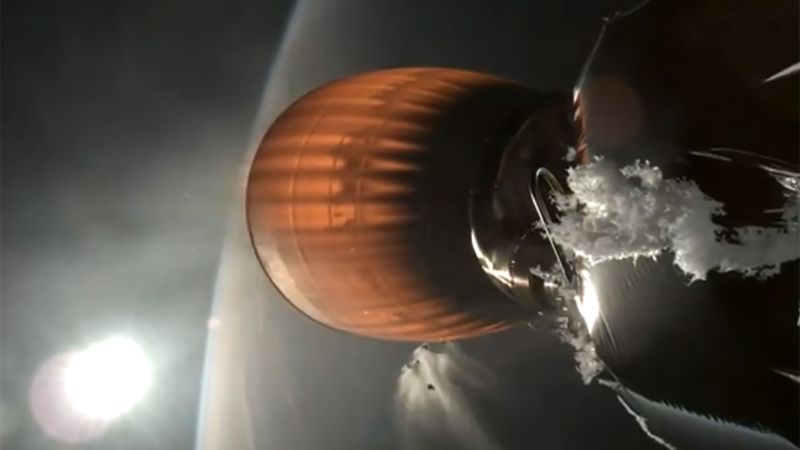SpaceX’s Falcon 9 rocket, a key player in satellite launches and NASA astronaut missions, encountered a rare failure on Thursday night while attempting to deploy a batch of internet satellites into orbit.
The launch took place from Vandenberg Space Force Base in California around 10:30 p.m. local time, with the rocket carrying 20 satellites for SpaceX’s Starlink network, which currently operates over 6,000 satellites from previous launches.
While most of SpaceX’s launches have been successful, Thursday’s mission took a different turn. The first stage of the rocket performed as expected, with the booster detaching and landing safely back on a sea platform for refurbishment.
However, the second stage of the rocket, responsible for propelling the satellites to their final orbit, failed to ignite as planned. SpaceX stated that the satellites were deployed into a lower orbit than intended due to the engine malfunction.
SpaceX CEO Elon Musk confirmed the anomaly, referring to it as a “rapid unscheduled disassembly,” a term the company uses for explosive failures. The cause of the malfunction remains unknown.
Despite the setback, SpaceX announced that they had made contact with five of the 20 satellites and were working to adjust their orbits. Musk also mentioned plans to update the satellite software for a potential solution using ion thrusters.
SpaceX reassured that their Starlink satellites are designed to disintegrate upon reentry, minimizing any potential risk to Earth. However, recent incidents have raised concerns about space debris surviving reentry.
It is unclear how this failure will impact SpaceX’s future launches, including upcoming astronaut missions. The Falcon 9 is set to carry out important missions in the near future, such as a private astronaut trip with Jared Isaacman and NASA crew missions to the International Space Station.
CNN reached out to NASA and the Federal Aviation Administration for comment, but neither agency responded immediately. SpaceX, known for its limited communication with the media, did not provide a statement.










